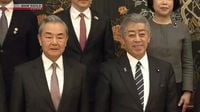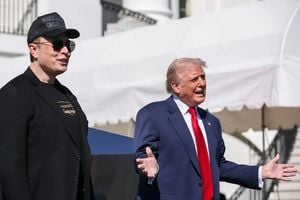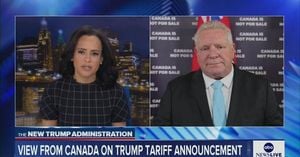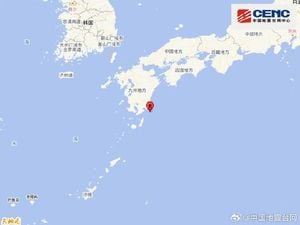In a significant diplomatic development, Japan and China held their first "Economic High-Level Dialogue" in six years on March 22, 2025, signaling a potential thaw in relations between the two nations. The dialogue, conducted in Tokyo, was attended by high-ranking officials from both governments, including Japanese Foreign Minister Yoshimasa Hayashi and Chinese Foreign Minister Wang Yi.
The discussions focused primarily on promoting government-civilian cooperation in the field of decarbonization. Both sides agreed to leverage the upcoming 2025 Japan Osaka/Kansai Expo as a platform to foster cultural exchanges between the nations. In a joint statement, the two ministers expressed optimism about enhancing mutual ties through collaborative projects.
Hayashi reiterated Japan's urgent request for China to resume imports of Japanese seafood products, which have been halted. This issue has significant economic implications for Japanese fishermen and businesses. Alongside this, Hayashi raised concerns over a number of Japanese nationals detained in China, which has reportedly hampered business activities and strained bilateral relations.
Following the fruitful discussions, Hayashi remarked, "We not only discussed cooperation projects but also had candid discussions on various unresolved issues. I believe this was a productive discussion." This sentiment reflected an eagerness from Japanese officials to build a stable and constructive relationship for the benefit of regional peace and prosperity.
Meanwhile, on the same day, Republican Senator Steve Daines, closely linked to former U.S. President Trump, met with Chinese Vice Premier He Lifeng to discuss economic relations amid rising tensions. During this meeting, both sides articulated their stances while expressing a willingness to continue dialogue.
According to Xinhua News Agency, Vice Premier He asserted that China stands against politicizing economic and trade issues, indirectly criticizing the Trump administration's tariff policies while emphasizing the need for respectful and beneficial dialogue. In support of U.S. concerns, Senator Daines conveyed President Trump’s long-standing request for China to block the outflow of fentanyl precursors, signaling a critical public health concern impacting both nations.
The ongoing trade friction between the U.S. and China loomed large over their discussions, highlighting the significance of maintaining open lines of communication. Daines expressed hope for further high-level talks in the near future, stressing that dialogue is essential for resolving pressing issues.
The parallel discussions between Japan and China as well as the U.S. and China reflect a complex interplay of international relations, as these countries navigate a changing global landscape. The outcomes of these dialogues, particularly regarding trade and economic cooperation, could significantly influence regional dynamics.
Analysts view Japan’s renewed outreach to China as a strategic move to strengthen economic ties and negotiate key issues directly. Restoring the flow of seafood imports from Japan may be critical for economic recovery, especially after recent trade disruptions.
In addition, the dialogues indicate a broader trend of nations reassessing their diplomatic strategies to effectively address mutual challenges. Japan seeks a constructive and stable relationship with China as essential for peace and prosperity in East Asia, while the U.S. aims to maintain a strong stance without alienating China completely.
As both nations prepare for future interactions, the emphasis on respectful engagement, mutual benefit, and open communication will likely play vital roles in shaping the outcomes of these diplomatic efforts.
Consequently, the emergence of these dialogues between significant global powers raises questions about how each country will navigate its domestic and international priorities in a rapidly changing environment. Ensuring the safety of nationals and fostering economic cooperation remain priority concerns as China and Japan seek to improve their relations after years of tension.
This evolving situation underscores the delicate balancing act these countries face as they endeavor to address internal pressures while engaging with one another on critical economic and diplomatic fronts. In conclusion, the sentiments shared by the leaders during their discussions suggest a cautious optimism regarding future engagements.






